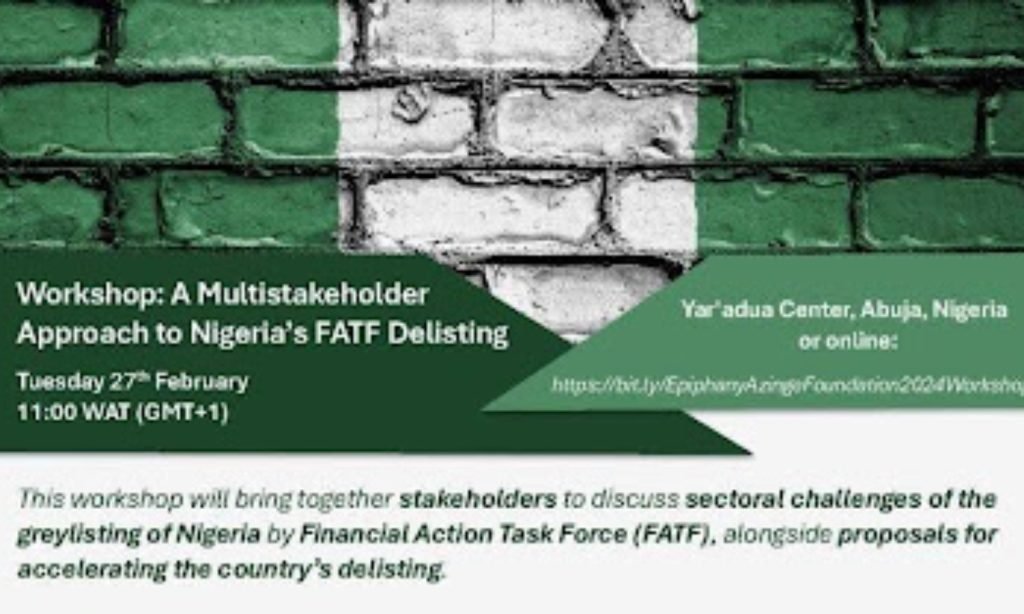
In June 2025, the Financial Action Task Force (FATF), the global standard-setter on anti-money laundering and counter-terrorist financing (AML/CFT), announced that 14 African countries remain under “increased monitoring,” a designation commonly known as the grey list. This development, based on FATF’s public update and further confirmed by regional reporting, highlights persistent structural weaknesses in Africa’s financial integrity landscape.
What the Grey List Means
Being placed on the grey list signifies that a country has strategic deficiencies in its AML/CFT systems, but has committed to work with FATF to address these issues through a time-bound action plan. Though not as severe as blacklisting, grey-listing carries serious consequences, such as reduced foreign direct investment, heightened scrutiny from international banks, increased transaction and compliance costs, and damage to national and institutional reputations.
According to the International Monetary Fund (IMF), countries on the grey list may see a 7–16% reduction in capital inflows, impacting their broader economic growth and development goals.
Country Highlights
- Nigeria: Africa’s largest economy remains under increased monitoring due to lagging enforcement, gaps in beneficial ownership transparency, and delayed establishment of an independent asset recovery agency. While Nigeria has updated its AML/CFT legal framework, FATF calls for stronger inter-agency coordination and improved prosecution rates.
- South Africa: Listed in 2023, South Africa has made significant reforms and is on track for possible delisting by late 2025. However, further progress is expected in prosecuting high-profile corruption and terrorism financing cases.
- Kenya: Reforms led by the Central Bank and the Financial Reporting Centre (FRC) are commendable. Nonetheless, the informal economy—including hawala systems—and unregulated sectors such as real estate still pose AML risks.
- Democratic Republic of Congo (DRC): Political instability has hindered effective oversight. FATF identified vulnerabilities in the supervision of financial institutions and persistent corruption in public procurement.
- Tanzania: Although efforts to digitize financial monitoring have begun, challenges remain in prosecuting suspicious transactions and implementing financial intelligence systems.
- Côte d’Ivoire: Despite its status as a regional financial hub, deficiencies exist in cross-border controls and beneficial ownership disclosures. Regional coordination under WAEMU remains essential.
- Burkina Faso, Mali, and South Sudan: Insecurity and weak institutions hamper AML/CFT implementation. Heavy reliance on informal cash-based economies makes these jurisdictions particularly vulnerable.
- Mozambique: With its natural gas wealth and ongoing insurgency, the country is flagged for weak controls over revenue flows and difficulty in tracking illicit finance.
- Namibia: Surprisingly listed, Namibia’s main deficiencies relate to weak financial supervision rather than widespread financial crime.
- Angola: Transparency in banking has improved, but sectors like extractives and public procurement remain opaque and exposed to elite capture.
- Algeria and Cameroon: These countries have made little demonstrable progress in cross-border enforcement and private-sector compliance, with Algeria’s centralized economy further limiting transparency.
Why Is Africa So Prominent on the Grey List?
Africa’s position on the grey list reflects systemic gaps between legislation and enforcement. While many countries have updated their AML/CFT frameworks on paper, implementation is often constrained by inadequate resources, political will, or institutional capacity. Additional challenges include: porous borders and informal financial systems, limited inter-agency cooperation, weak asset recovery frameworks, and low levels of transparency in high-risk sectors. These factors not only undermine investor confidence but also hinder access to international financial systems and climate financing opportunities.
Turning Risk into Reform
Grey-listing is not a permanent verdict. It is a call to action. Countries like Nigeria, South Africa, and Tanzania are demonstrating that reform is possible. Across the continent, there is growing recognition that aligning with FATF’s 40 Recommendations is essential for financial and national security.
African Center’s Recommendations
At the African Center for Governance, Asset Recovery and Sustainable Development, we believe Africa can, and must, rise to the challenge. We urge the following steps:
- Strengthen Regional Cooperation: Bodies like ECOWAS, the African Union, and the East African Community should coordinate peer learning and collective reform efforts.
- Empower Civil Society: CSOs and media must be part of whistleblowing, monitoring, and accountability mechanisms.
- Improve Asset Recovery Tools: Countries should adopt beneficial ownership registries, enable non-conviction-based forfeiture, and integrate asset tracing tools.
- Expand Technical Support: International partners such as GIABA, UNODC, and the AfDB should deepen their training, infrastructure, and peer-review programs to assist member states.
A Call to Action
Fourteen African countries on the FATF grey list should concern not only financial institutions but also serve as a warning to policymakers and citizens. This is a wake-up call to protect Africa’s financial systems from misuse, promote transparency, and drive inclusive development.
Learn more about our work on AML/CFT, asset recovery, and governance reform at:
Website: https://africancenterdev.org
Email: info@africancenterdev.org
LinkedIn: https://www.linkedin.com/company/africenterdevTop of Form
X: @Africenterdev
Disclaimer: This blog reflects the views of The African Center and is part of our ongoing monitoring of financial integrity trends in Africa.
Footnotes
- FATF Public Statement, June 2025 – FATF Website
- Business Insider Africa, “14 African countries on the FATF dirty money watchlist in 2025” Link


